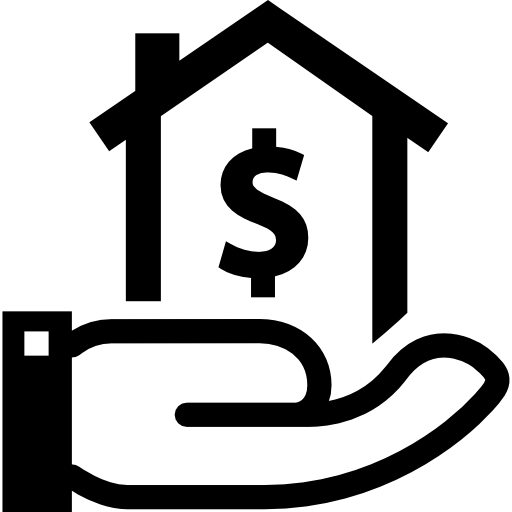The cash home-buying process can be your ticket to a quick, stress-free sale. No endless showings. No financing hiccups. Just a straightforward deal.
But how do you smoothly navigate the ins and outs and seal the deal with minimal stress?
We’ll walk you through the process – from how to dress your house for a successful sale to spotting legitimate buyers and verifying paperwork.
Let’s cut through the clutter and close the deal—fast and on your terms.
Key Notes
- Cash home sales offer speed and simplicity, often closing in as little as 7 days.
- Selling “as-is” attracts investors but may result in lower offers.
- Home-buying companies typically pay 70-90% of market value for convenience.
- Verify buyer credentials and watch for red flags to avoid potential scams.
Step 1: Prepping for a Quick Sale

You’ve chosen the cash route but where do you start? Here’s how to prepare a home for cash buyers:
Get Your Head Around Selling "As-Is"
In a cash sale, “as-is” means you’re putting your house on the market in its current condition without making any repairs or improvements. This option removes the time and cost of getting your home market-ready.
However, there are pros and cons.
On the plus side, selling as-is attracts cash buyers like real estate investors and home-buying companies who are prepared to handle repairs themselves. It’s also quicker since you can skip the repair process.
On the downside, selling as-is may result in a lower offer since buyers will factor in the cost of necessary repairs. Deciding whether to make minor repairs or sell as-is depends on your goals and how quickly you need to sell.
Declutter & Brush Up
Even if you’re selling as-is, a little prep work goes a long way in making your home more appealing to cash buyers. Decluttering is quick and effective as your house looks larger and more inviting.
You don’t need to go all out with staging, but tidying up and removing personal items can help potential buyers envision a home’s potential.
If you have time, consider a quick deep clean – clean homes are more attractive, even in an as-is sale.
Get A Home Valuation
Know what your home is worth before starting to look for cash buyers.
A home valuation provides a realistic starting point for negotiations. You can hire a professional appraiser or use online tools to estimate your home’s worth.
Keep in mind that cash offers are usually lower than what you’d get from a traditional buyer since cash sales appeal to investors looking for a deal. However, having a clear idea of your property’s value won’t hurt.
Step 2: Find Cash Buyers
You’ve done the prep work, so now’s the time to find potential buyers for your house.
Approach a Home Buying Company
Direct buyers, like real estate investors and home-buying companies, look for properties they can flip or rent out. They are the most common cash buyers.
But how much below market value do house-buying companies offer? They are usually prepared to pay between 70% and 90% of a property’s market value in exchange for speed and convenience.
Bear in mind many home-buying companies accept houses in any condition, so there’s no need to spend your own money on repairs or wait for mortgages to be approved.
Consider a Real Estate Agent
A real estate agent can help you find reputable cash buyers and navigate the sale process.
Agents often have networks of investors and buyers to tap into to increase the chances of getting a good offer.
Plus, they can help with negotiations and paperwork, ensuring the transaction goes smoothly.
Online Platforms
In today’s digital age, online platforms are a powerful tool for connecting with cash buyers.
You can use websites like Zillow, Opendoor, and Offerpad to list your home and attract buyers ready to pay cash.
Networking and Local Investor Groups
Networking is a powerful tool and local investor groups and real estate meetups are great places to find cash buyers.
These groups often comprise professionals looking for their next investment property. By attending events and building relationships in these communities, you can find motivated buyers ready to make a deal.
Step 3: The Paperwork Process
While selling your house for cash is generally more straightforward than a traditional sale, there’s still some cash sale paperwork to take care of.
Here’s a list of the documents you need:
| Document | Purpose |
|---|---|
| Title Certificate | Proves ownership of the property and ensures there are no liens or legal claims against it. |
| Certificate of Occupancy (CO) | Confirms the property meets local building codes and is safe to inhabit, if applicable. |
| Property Inspection Reports | Optional, but reassures buyers about the property's condition. |
| Lead-Based Paint Disclosure | Required for homes built before 1978 to inform buyers of potential lead hazards. |
| Home Warranty | An optional extra to make the property more attractive to buyers. |
| Property Tax Records | Provides recent tax bills to help buyers understand the financial obligations they’ll inherit. |
| Deed | Necessary for transferring ownership to the buyer. |
| Disclosure Statements | Informs buyers of known property issues, such as water damage or mold. |
| HOA Documents | Provides rules, fees, and assessments if the property is part of a homeowners association. |
| Personal Identification | Proof of identification, usually through a government-issued ID, required to complete the sale. |
Review Your Offer
While cash offers come with fewer contingencies, you still need to review them carefully and weigh up their merits.
Evaluate each offer based on the net proceeds – what you actually take home after paying off any mortgages, liens, and closing costs. It’s also important to consider the buyer’s reputation and track record.
A slightly lower offer from a reputable buyer might be better than a higher offer from someone who could cause problems later on.
Negotiating Terms
There’s always a bit of bargaining involved in a cash deal.
Consider negotiating the closing date, any seller concessions, and including certain contingencies. For example, you might ask for a rent-back agreement if you need extra time to move out.
The goal is to find a balance that works for both parties while ensuring you get the best possible deal.
Step 4: Time To Close the Deal

The cash sale closing process is less complex than sealing a traditional sale and the process happens quickly, sometimes in as little as 7 days.
This is what to expect:
Final Walkthrough and Inspection
A final walkthrough is standard practice in traditional sales but less common in cash transactions, especially in as-is sales.
However, some buyers may still request a final walkthrough to check the property is in the same condition as when they made their offer.
If the buyer does request a walkthrough, it’s a good idea to accommodate them to avoid any last-minute issues.
Transferring Ownership
Your final step is transferring ownership of your home. This involves signing the deed and other relevant documents to transfer the property to the buyer.
Once the paperwork is signed and recorded with the local county, the buyer becomes the new owner, and you’ll receive the payment. Be sure to keep copies of all signed documents for your records.
Pro Tips For Sellers
While the cash home-buying process offers many advantages, there are also common issues in cash sales to watch out for.
Here’s what you need to avoid:
1. Neglecting Due Diligence
Even if the buyer is paying cash, you must verify their finances.
Ask for proof of funds, such as bank statements or letters from financial institutions, and take the time to review these documents carefully.
2. Skipping Professional Advice
While it’s tempting to go it alone, skipping professional advice can be risky. Lawyers and financial advisors can help you navigate the sale and avoid costly mistakes.
3. Overlooking Documentation
Review all the paperwork and make sure it’s correctly completed. Missing documents or incomplete forms can delay a sale and at worst, cancel the deal.
4. Ignoring Contingencies
Some cash buyers may include contingencies in their offer, such as inspection or financing contingencies.
Be cautious about accepting offers with no contingencies, as this could lead to problems later.
5. Unrealistic Pricing
Keep your asking price realistic and in line with market conditions. If your price is too high, you may struggle to find a buyer. Too low, and you could leave money on the table.
6. Falling for Scammers
Unfortunately, the cash-buying market is not immune to scams.
Be on the lookout for buyers who offer too-good-to-be-true deals or pressure you to close quickly without proper documentation.
7. Rushing Through Negotiations
When selling your home for cash, there’s often pressure to quickly accept a deal. Take your time to review the offer and negotiate terms that are favorable to you.
8. Lack of Transparency
Ask questions if you’re unclear on anything and make sure all terms are laid out in writing.
9. Not Verifying Your Buyer
Don’t take a buyer’s word and assume they have the money to purchase your home. Here’s how to verify the financial capability of your cash buyer:
- Request proof of funds before accepting an offer. This could include bank statements, letters from financial institutions, or statements from solicitors.
- Don’t take the documents at face value. Check the funds are liquid and accessible, and the documents are from a legitimate source.
- Besides proof of funds, ask for documents showing the buyer’s financial stability. This could include recent property sales or proof of other liquid assets.
- Research the buyer’s reputation by looking for reviews or asking for references. You could also consult a real estate agent who may have worked with the buyer before.
- Having a legal expert review the buyer’s financial documents and the terms of the sale can provide additional peace of mind and ensure compliance with laws.
10. Check Document Authenticity
Fraudulent documents are a real concern, so it’s important to verify the authenticity of all paperwork involved in the sale.
You can do this by:
- Contacting the institution that issued the documents to confirm their legitimacy. Be cautious if the buyer is unwilling to provide this information.
- Looking for watermarks, stamps, and other security features showing the documents are genuine. If something seems off, don’t hesitate to question it.
- Carefully review names, account numbers, and transaction dates. Inconsistencies can be a red flag.
- Watching for red flags, like discrepancies in information or buyers who are overly eager to close quickly without proper documentation.
Frequently Asked Questions
What are the benefits of selling my home for cash?
Selling for cash offers faster closings, fewer contingencies, and avoids financing issues that can delay traditional sales.
How do I ensure the cash buyer is legitimate?
To ensure a buyer is legitimate, request proof of funds, conduct due diligence and consult with legal experts if necessary.
Can I still negotiate the price in a cash sale?
Yes, negotiating the price and terms is still important in a cash sale. Don’t accept the first offer without considering other factors like closing costs and contingencies.
Are there any risks in selling my home for cash?
Risks include falling for scams, neglecting due diligence, and overlooking necessary documentation. It’s important to take steps to verify the buyer and ensure all paperwork is in order.
Skip the Waiting Game
Selling your home for cash can be a swift and straightforward process when you’re armed with the right knowledge.
From preparing your property and finding legitimate buyers to navigating paperwork and closing the deal, each step requires attention to detail. Remember to verify your buyer’s credentials, stay vigilant against scams, and don’t rush through negotiations.
While cash sales often mean a lower price, they offer speed and convenience that traditional sales can’t match. By following the tips and advice we shared, you’ll be well-equipped to make informed decisions and secure a favorable deal.
Ready to turn your property into quick cash? Contact us today for a free, no-obligation quote and take the first step towards a hassle-free home sale.





